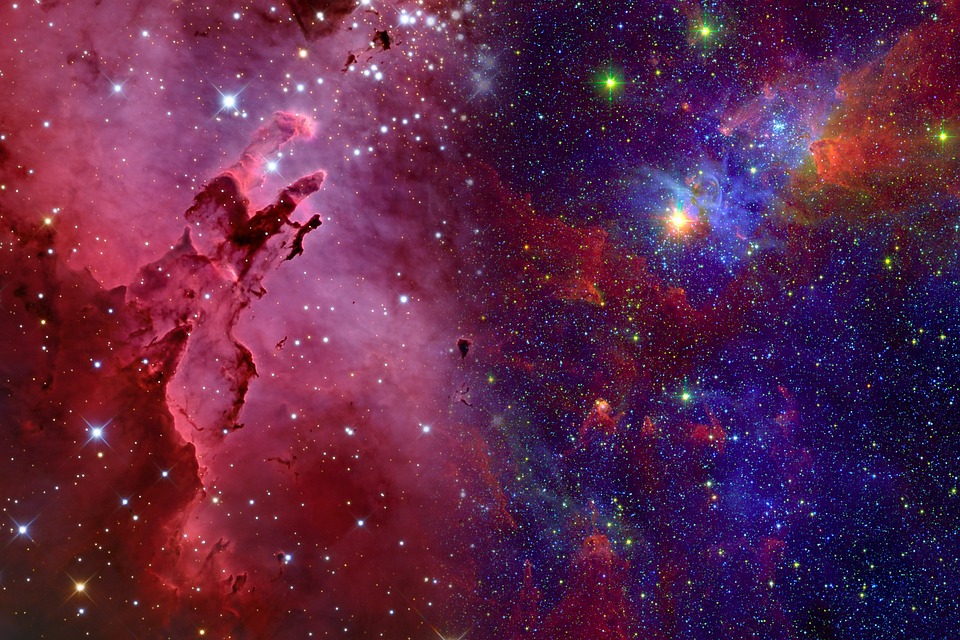Throughout the ages, humanity has gazed up at the vast tapestry of the cosmos, pondering its intricacies and the underlying principles governing its existence. The phenomenon of the universe’s fine-tuning has captivated both scientific inquiry and philosophical discourse. Fine-tuning refers to the precise conditions that permit the emergence of life; a realization that inspires a mix of awe and inquiry. Within the framework of Bahá’í teachings, this contemplation serves not only as an empirical observation but also as a profound source of spiritual understanding.
The universe’s fine-tuning can be summarized by the astonishing precision with which physical constants and initial conditions align to enable the existence of life. From the exact force of gravity to the delicate arrangement of molecular structures, the universe appears to support the intricate balance necessary for life to flourish. This precise calibration raises profound questions about the nature of existence: Is the universe merely a serendipitous outcome of random cosmic events, or is there a transcendental intelligence orchestrating these phenomena?
At the heart of the Bahá’í perspective is a view that unites science and spirituality. The teachings emphasize that the universe operates under divine laws, which govern both physical and metaphysical realms. These laws are not arbitrary but reflect the wisdom and love of the Creator. Such a belief presents an alternative narrative to the notion of randomness prevalent in some scientific interpretations of fine-tuning. The divine intelligence, according to Bahá’í teachings, manifests through the orderly universe and its inherent beauty, inviting humanity to explore the depth of creation.
The contemplation of the universe’s fine-tuning provokes a sense of wonder that transcends empirical measurements. The harmony found in cosmic phenomena—the delicate balance between matter and energy, the orchestration of celestial movements, and the symphony of life forms—echoes the principles outlined in Bahá’í scripture. It encourages an appreciation for the interconnectedness of all creation, aligning closely with the belief that diversity enriches unity. The existence of multiple life forms, each suited to its ecological niche, exemplifies this unity in diversity. Such views advocate for a holistic understanding of existence, where the microcosm reflects the macrocosm.
This paradigm shift from a purely materialistic viewpoint to an appreciation of divine handiwork challenges individuals to look beyond apparent chaos and disorder. It emphasizes a profound respect for the intricate web that sustains life, thus honing a sense of responsibility towards stewardship of the Earth. The Bahá’í teachings call for humanity to recognize its role as caretakers, fostering a global community that honors the sanctity of all living beings. This caretaking extends beyond ethical implications; it requires an exploration of one’s purpose in the universe—a quest for meaning shaped by an understanding of fine-tuning and cosmic order.
Furthermore, beliefs in a finely-tuned universe often hint at a pervasive sense of purpose and direction within creation. Challenges arise when juxtaposing the scientific investigation of the cosmos with theological interpretations. Some may perceive a conflict between reason and faith, navigating a chasm that seems to separate analytical thinking from spiritual insights. However, Bahá’í teachings elucidate that faith and reason are complementary means of discerning truth. Reason, when properly exercised, leads individuals closer to deeper spiritual realizations; conversely, spiritual insights can guide inquiries into the natural world.
One notable implication of the fine-tuning debate is the anthropic principle, which posits that observations of the universe must be compatible with the conscious and sapient beings that observe it. Within the Bahá’í framework, this principle reinforces the notion of humanity as a microcosm of divine creation, existing not merely as an isolated phenomenon but as part of a greater design crafted with intention. The evident support for life hints at the possibilities predetermined by a loving Creator, further establishing a bond between the universe and its inhabitants.
The notion of fine-tuning encourages an awareness that extends beyond the cosmos to encompass morality and ethics. The Bahá’í teachings center around the idea of progress—the elevation of humanity as a whole. Just as the universe is finely tuned for life, the principles of justice, kindness, and cooperation are essential adjustments for human thriving. The trajectory towards a more unified society reflects the larger cosmic order, suggesting that clashing forces and differing beliefs can harmonize into a greater symphony of existence. The fine-tuning of the universe mirrors humanity’s potential to cultivate harmony among diversity, promoting an ethos of universal peace.
In conclusion, the exploration of the universe’s fine-tuning embodies a profound interplay of cosmic phenomena and spiritual insight. The Bahá’í teachings offer a nuanced perspective that heralds the unity of science and spirituality, fostering a deeper appreciation for the cosmos and humanity’s role within it. Instead of perceiving fine-tuning merely as an enigmatic anomaly to be explained away, it can be understood as an invitation to delve into the mysteries of existence and to foster compassion and understanding toward all creation. Through contemplation and practice of these teachings, individuals may enrich their understanding of their place in the universe, engaging in a lifelong journey of discovery and unity.
